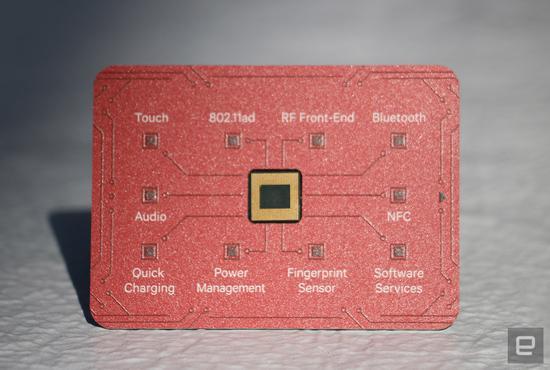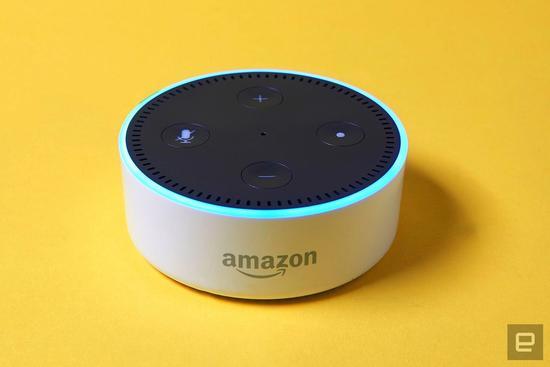This article is produced by NetEase Smart Studio (public number smartman 163). Focus on AI and read the next big era!
[Netease smart news December 27 news] "Artificial intelligence is like the current 'Wild West'," Qualcomm graphic director Tim Leland told me earlier this month that the company introduced the latest high-end mobile chips. The Snapdragon 845 was originally designed to better handle artificial intelligence computing tasks. This is the latest result of the tech industry's obsession with artificial intelligence. No company wants to be left behind, either by optimizing hardware for artificial intelligence processing or by machine learning to speed up tasks. Each of the major brands has invested heavily in artificial intelligence. However, although artificial intelligence has penetrated into all aspects of our lives in 2017, the revolution has only just begun.
This may be a useful time point and can be used to clarify that artificial intelligence is usually the collective name for various technologies. Our digital assistants have artificial intelligence such as Siri, Alexa, Cortana, and Google Assistant. You will find artificial intelligence on facebook's Messenger chat tool, such as Facebook's automatic reply feature. It is defined as "intelligence displayed by the machine," but it also means that the computer operates without human instructions. Then there is machine learning, which is how computers learn to do what humans do. For example, recently, MIT’s face recognition system learned how to recognize humans, just like humans, without the help of creators.
It is important not to confuse these concepts - machine learning is a subset of artificial intelligence. Let us use the term "machine learning". When we specifically discuss neural networks and models such as google's TensorFlow library, AI refers to robots, devices, and software that can accomplish tasks they have already learned.

This year, artificial intelligence became so intelligent that computers defeated humans, won a perfect "Pac-Man" score, and even kept pace with "Super Star" gamers. People began to use artificial intelligence in medicine to predict disease, and find suicidal users on social networks. Artificial intelligence also started writing music and writing screenplays.
No matter where you are, there are always people who want to apply artificial intelligence to something. This is all thanks to the neural network that Google, Microsoft and their peers continued to invest in this year, acquired artificial intelligence startups, and launched or expanded the artificial intelligence sector. The progress of machine learning is fast, and it will continue to improve next year.

One of the biggest changes on the occasion of 2018 is the shift from cloud computing to mobile phone learning. This year, Google, Facebook and Apple introduced a mobile version of the machine learning framework that allows developers to accelerate their artificial intelligence-based tasks in their own applications. Chip makers have also designed mobile processors for machine learning. Huawei, Apple, and Qualcomm have adjusted their respective new chip sets this year to provide better management of artificial intelligence-related workloads by providing specialized "nerve" cores. However, apart from the Microsoft translations on the iPhone's "face ID" and "Huawei Mate 10 Pro," we haven't seen any specific examples of benefits for artificial intelligence chips.
Basically, artificial intelligence technology has been improved for many years, but most of them are based on the cloud. Take an image recognition system as an example. At first, it may distinguish between different men and women. However, as the project continues to do more image training in the cloud, it can better differentiate users and these improvements will be sent to your phone. In 2018, we will put real artificial intelligence in our pockets. Being able to execute models on mobile devices not only makes AI faster, but also stores data on the phone instead of sending it to the cloud, which is more beneficial to your privacy.
Obviously, this industry is doing the basic work for our smart phones and other devices so that they can learn on their own, thereby improving translation, image recognition and other technologies, and providing more personalized services. But as the available hardware is getting better at processing machine learning calculations, developers are still struggling to find the best way to add artificial intelligence to applications. No one in the industry really knows what a killer application is.

Ultimately, every industry and every aspect of our lives - from shopping centers to self-driving cars - will be transformed through artificial intelligence. Stores will understand our tastes, sizes and habits and use this information to provide services for us or tell us where we can find what we want. When you walk into the store, the retailer will know who you are, what you have bought in the past, what you are allergic to, and whether you have been to a doctor recently and what your favorite colour is. The system's artificial intelligence will learn what you buy at a specific time of the year and recommend similar or competing products to you, providing appropriate information on the display on the shelf.
The car will be able to avoid obstacles, use machine learning technology to better identify dangers, and navigate in danger. Even your doctor will soon rely on artificial intelligence to classify x-rays, MRI scans, and other medical images, thereby reducing the time spent on patient diagnosis.

Artificial intelligence has become very popular in the field of image recognition and will soon become more popular. Home security cameras have become better and better in distinguishing humans, dogs, cats and cars. If this is ultimately used by law enforcement agencies to make it possible to search for potential criminals or missing persons in traffic and other public camera footage, don't be surprised.
The digital assistant we talk to through mobile phones and smart speakers can not only learn faster and more naturally through dialogue, but also better predict what we need and what we want. When you enter the house after work, the light comes on, the thermostat raises the temperature, and your favorite music starts playing automatically.

Of course, this situation has already happened, but the existing method of setting the trigger depends on your location or the time of day. In the future, artificial intelligence will know how to adjust everything in the home, according to the way you like, while taking into account external factors. For example, if the weather is hot, your digital assistant can turn on the air conditioner without having to enter it after detecting an outside temperature change. All these automations may eventually make the world of black mirrors a reality.
In 2017, artificial intelligence has occupied a growing momentum, but the most compelling use cases are limited to a controlled experimental environment. Next year, we will begin to see the emergence of more powerful artificial intelligence, which may change our way of life. This may not happen immediately, but soon artificial intelligence will dominate our lives - whether it is good or bad.
(Selected from: engadget Author: Cherlynn Low compile: NetEase see foreign intelligence platform compiler revision: nariiy)
Pay attention to NetEase smart public number (smartman163), obtain the latest report of artificial intelligence industry.
Magic Cube Led Display,Led Video Cube,Cube Led Screen,Magic Cube 5D
ShenZhen Megagem Tech Co.,Ltd , https://www.megleddisplay.com